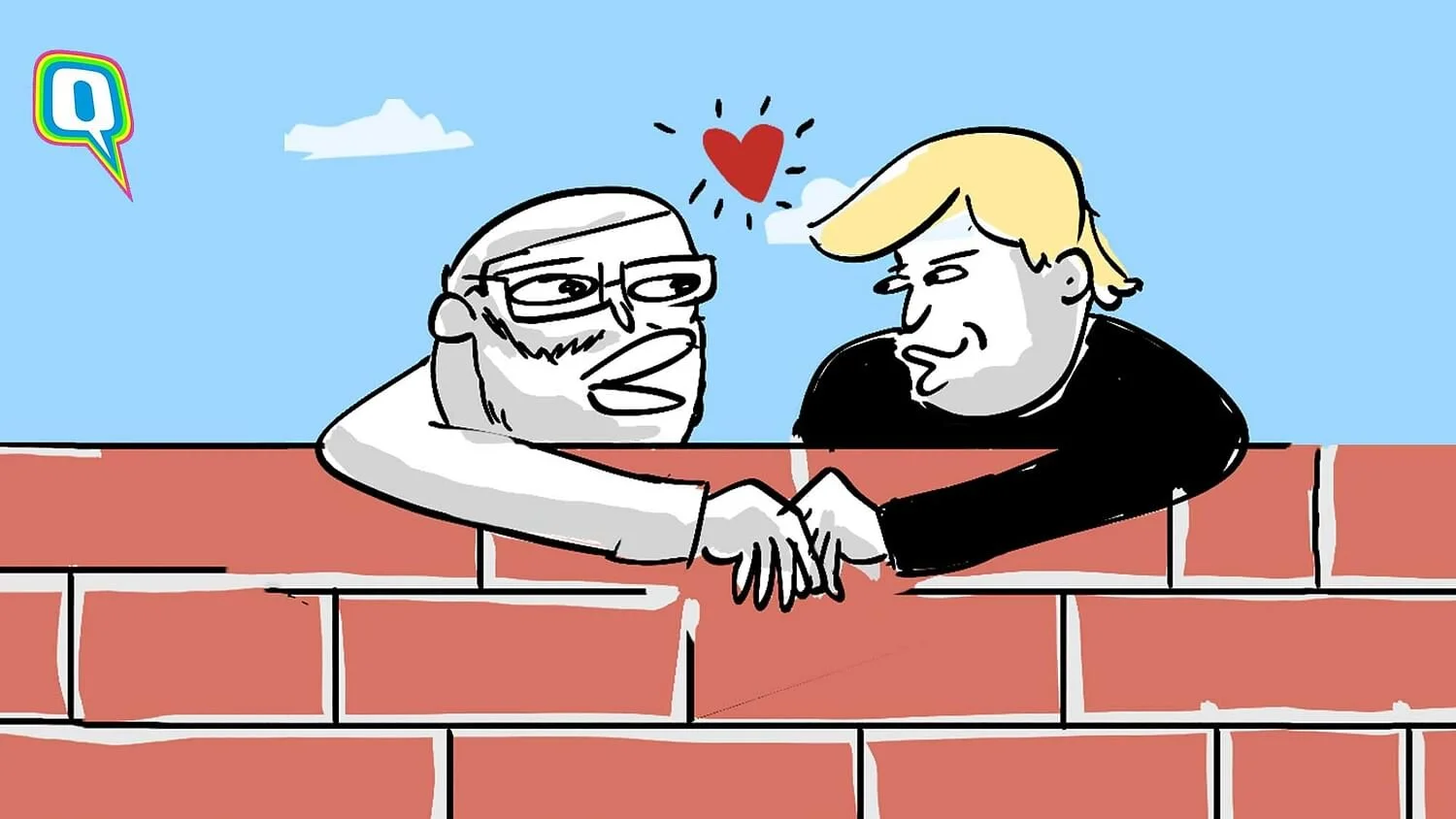Bonus Episode: The Autocratization of Democracies
Welcome to the first bonus episode of Art of Citizenry Podcast. In an effort to share more bite size food for thought, I am introducing these short listens for you to ponder. From Trump’s America to Modi’s India, I reflect on how democracies around the world are being shaped by autocratic leaders thriving on the consolidation of power, the oppression of dissent, and nationalism.
Nationalism in Trump’s America and Modi’s India
Over the past week, I took some time to reflect on last Wednesday’s white supremacy insurrection. From Modi’s India to Trump’s America, there is no arguing that nationalism thrives on the polarization of the other.
Two of the world’s largest democracies are currently grappling with the realities of autocratic leaders who have managed to create deep divides within their countries through nationalist appeals. From the farmers' protest to BLM protests, neither Modi nor Trump are strangers to protests, but both have managed to disregard democratic norms to strengthen and test the extent of their executive power.
Polarization + Islamophobia
Trump’s Muslim Ban Executive Order, which now feels forever ago but really wasn’t, blocked the entry of individuals from several Islamic countries, especially Syrian refugees seeking protection in the United States. The Trump administration cited terrorism as a reason for the Muslim Ban, giving validity to white America’s inability to think a terrorist can be anyone other than a brown skinned, Arabic-speaking Muslim or anyone that “looks Muslim.” The events at Capitol Hill would certainly counter that narrative. On the other side of the world, Trump’s dear friend Modi, played his own page from the Islamophobia for World Leaders playbook.
Earlier last year, Modi pushed into effect the Citizenship Amendment Bill, which authorized the use of religion as a criteria for determining whether undocumented migrants in India can be granted citizenship. What’s interesting is that Islam was specifically not included as a fast-tracked religion while other religions were. Islamophobia at its finest.
While on the surface the simple notion of granting citizenship to the country’s undoucmented population sounds like a move towards creating a more equitable society, this layer of religious hegemony feeds into India’s push towards a Hindu-centric nation.
Nationalism Exists Because of Systemic Oppression
Nationalism at its core, creates dangerous divisions that can easily be stoked through false narratives. It builds on fear, giving hate the fuel it needs to thrive.
So, why do we keep saying things like “America is better than this” or “This isn’t who we are” when America was built on the genocide and exploitation of Indigenous and Black people? My fear with many of the conversations currently happening in light of last week's events is this notion that Nationalism is somehow a new construct. It is not. It has always existed, it is now just planting its flag at the nation’s capital.
India and America might be called democracies, but both are currently navigating the result of an autocratic government, which thrives on the consolidation of power, oppression of dissent, and nationalism. This consolidation of power is built on the existence of structural oppression and its exploitation. There will always be people who wield power and those who yield it.
Where do we go from here?
We are seeing the realities of polarization -- with hate running through the veins of nation states and dripping off the tongues of their leaders. So where do we go from here?
Understand that uprisings are not the problem, in fact they are a necessity in any healthy system because they challenge the consolidation of power. However, motivations when rooted in hate must be addressed by unpacking the systemic structures breathing life into hate.
De-bias language. Address why we use “softer words” to describe white people who terrorize the nation’s capitol by simply calling them armed protestors instead of what they really are: terrorists. Language has power and using the right term leads to more accountability.
Recognize how we benefit from and at many times reinforce systems of oppression. By reflecting on where we stand in relation to power and challenging the systems we operate in, we are not accepting the status quo at face value and naming our privilege. For example, if it wasn’t for the Civil Rights movement led by Black Americans, my family would have not been able to move to the United States under the Immigration Act of 1924, which was overturned in 1965 after the Civil Rights movement challenged white-America’s racist systems.
Image by the Quint
Looking back at Nazi Germany, we might tell ourselves how obvious it must have been to identify fascism, but that’s the thing. History repeats itself because in any given moment we struggle to name moments what they are. Throughout Trump and Modi’s term, there have been countless policies driven by hate, but it took one of the most outrageous events in American history and the world’s largest protest for us to finally recognize the ways in which we are letting history repeat itself.
Thank You!
Thank you for listening! This podcast is dedicated to creating a safe space to discuss and challenge topics surrounding how we each navigate our personal advantages and disadvantages.
To amplify and continue these conversations, please subscribe, download, share and leave a review for the Art of Citizenry Podcast — I appreciate your love and support! Follow me and share your thoughts on Instagram @manpreetkalra + @artofcitizenry. To learn more about Art of Citizenry and for information on future webinars and workshops, please visit artofcitizenry.com.


